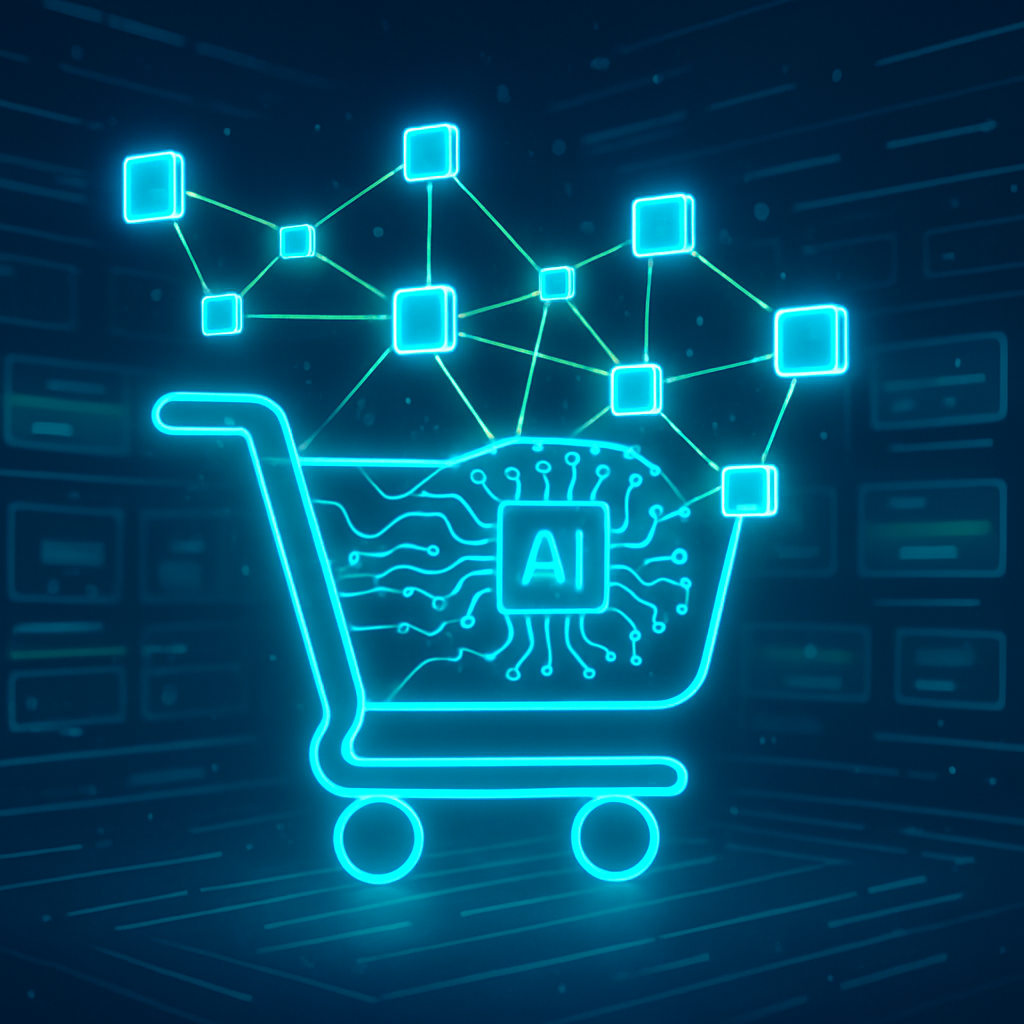
How AI is Shaping the Future of Digital Transformation in Ecommerce
Introduction
In 2025, artificial intelligence (AI) has become an indispensable catalyst for digital transformation within the eCommerce sector. Far beyond buzzwords, AI technologies are enabling businesses to reimagine traditional commerce into intelligent, adaptive ecosystems that anticipate customer needs, optimize operations, and create seamless shopping experiences.
The New Digital Landscape Powered by AI
The fusion of AI and digital transformation in ecommerce represents a profound shift. Digital transformation traditionally focused on integrating digital technologies to improve business processes; AI elevates this by introducing learning systems, predictive analytics, and automation that continuously refine these processes in real-time.
For instance, AI-driven customer behavior analytics analyze vast datasets from purchase histories, clickstreams, and engagement metrics to deliver hyper-personalized recommendations. Ecommerce platforms now evolve into dynamic digital marketplaces that tailor content, offers, and user interfaces uniquely for each consumer.
Dynamic Personalization at Scale
Personalization has moved from static customization to dynamic, real-time adaptation. AI algorithms analyze contextual signals like device type, time of day, and even weather to adjust which products are promoted or discounted. This dynamic approach helps businesses foster loyalty and increase conversion by meeting customers exactly where they are.
AI-Powered Inventory and Supply Chain Management
Beyond front-end customer engagement, AI streamlines backend operations crucial to digital transformation. Intelligent demand forecasting models predict inventory needs with greater precision, minimizing overstock or stockouts. Automated warehouse robotics orchestrated via AI optimize picking and packing, reducing fulfillment time drastically.
Strategies for Future-Ready Ecommerce Businesses
To harness AI in digital transformation effectively, ecommerce players should adopt integrated strategies combining technology with organizational agility.
Embrace Adaptive AI Ecosystems
Instead of isolated AI tools, businesses benefit from building adaptive ecosystems where AI modules—recommendation engines, chatbots, fraud detectors—communicate and learn collectively. For example, if fraud detection AI flags suspicious activity, the recommendation system adjusts offers to mitigate risk. This holistic approach maximizes insights and operational cohesion.
Invest in AI-Driven Customer Insights
Data remains the lifeblood of AI. Businesses should focus on collecting rich, privacy-compliant customer data across touchpoints and feeding it into AI platforms that generate actionable insights. Embracing explainable AI frameworks ensures transparency and trust in AI-driven decisions, vital for customer acceptance.
Prioritize Automation and Augmentation Balance
AI's role is not solely to replace human jobs but to augment human capability. Automating routine tasks like order processing frees staff to focus on strategic initiatives such as enhancing customer relationships or innovating product offerings. Ecommerce firms thriving in 2025 skillfully balance this automation-augmentation spectrum.
Prepare Flexible, Scalable Infrastructure
Digital transformation empowered by AI demands scalable cloud infrastructure capable of handling fluctuating loads and accommodating emerging AI services. Modular software architectures enable swift integration of new AI capabilities as technologies advance.
Real-World Examples of AI-Driven Ecommerce Digital Transformation
Case Study 1: AI-Powered Virtual Fitting Rooms
A leading fashion ecommerce platform integrated AI-driven augmented reality virtual fitting rooms, allowing customers to virtually try on apparel. This reduced product returns by 20% and increased session duration by 35%, illustrating how AI enhances the customer journey and operational efficiency.
Case Study 2: Conversational AI for Customer Support
An electronics retailer adopted AI chatbots capable of understanding nuanced language and handling complex queries. This resulted in a 50% reduction in first-response times and a 25% boost in customer satisfaction scores, showcasing AI's impact on service quality.
Challenges and Ethical Considerations
Despite its promise, AI-driven digital transformation faces challenges.
Data Privacy and Security: Striking a balance between personalization and user privacy is paramount as regulations tighten globally.
Bias and Fairness: AI models must be monitored to prevent inadvertent bias that could alienate customer segments or perpetuate stereotypes.
Technology Accessibility: Smaller ecommerce players may struggle to afford or implement complex AI systems, signaling a need for scalable solutions and shared platforms.
Conclusion
Artificial intelligence is rewriting the blueprint for digital transformation within ecommerce. By enabling intelligent personalization, streamlining supply chains, and fostering dynamic operational ecosystems, AI equips businesses to navigate an ever-evolving digital commerce landscape. Future-ready ecommerce enterprises are those who blend adaptive AI ecosystems with customer trust, organizational agility, and scalable infrastructure. As AI innovation accelerates, the frontier of digital and ecommerce transformation will continue expanding, offering both opportunities and responsibilities to redefine the future of commerce.






